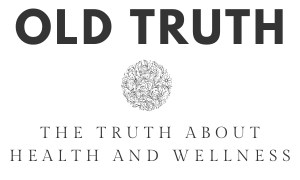Your temporomandibular joint (TMJ) is a sensitive joint that is often the cause of orofacial pain and headaches. TMJ injuries can be caused by a rough trip to the dentist, medical malpractice, a birth injury, a temporomandibular disorder, or even a car accident that caused a personal injury. Navigating a personal injury case while battling a TMJ injury can be difficult, but it’s important to know more about the causes and what steps you can take both medically and legally.
Vehicle accidents, whiplash, and your TMJ
The whiplash commonly caused by vehicle accidents has been identified as a common cause of a TMJ injury. Personal injury from a car accident can cause chronic pain, wrongful death, issues with your nervous system, and diminish your quality of life. Unfortunately, it can be difficult to get a correct diagnosis or accurate diagnosis for a TMJ injury after vehicle accidents. They’re commonly overlooked and aren’t always referred to as a “serious injury,” often by medical professionals with years of experience and even decades of experience. However, addressing a potential temporomandibular disorder is critical and an early diagnosis can prevent an ongoing temporomandibular disorder, recurring neuropathic pain, and chronic orofacial pain. It can also lessen the chances that you’ll need physical therapy for severe pain or chronic pain conditions.
Part of early diagnosis is understanding the symptoms of a facial pain disorder and relaying these to your health care provider if you’re experiencing any. Without an orofacial pain diagnosis from a professional in the field of orofacial pain, you may find that your facial pain is rapidly impacting your quality of life. The medical bills for facial pain can quickly stack up. Common symptoms of an orofacial pain disorder include tenderness in the jaw, locking of the jaw which makes it difficult for you to open and close your mouth, and aching pain both in and around your ears. Other symptoms include increased difficulty chewing or eating or a clicking or grating sound that occurs when you open and close your mouth or when you eat. If you’re experiencing this type of chronic pain, you’ll want a physical examination to receive treatment. For chronic pain or your specific type of orofacial pain, you’ll likely be prescribed some form of medication or painkillers. In serious cases, physical therapy to regain the full function of your jaw may be required.
Legal needs during a TMJ personal injury case
If your temporomandibular disorder was caused by whiplash during a wrongful personal injury or if you believe the other driver’s negligence caused the accident, you are probably embroiled in one of the many types of personal injury cases. A personal injury lawsuit may seem like the last thing on your mind when you’re negotiating with your insurance company and dental pain, but it’s important to protect your best interests and at least seek a free initial consultation with someone who is familiar with personal injury law. Many legal services focus strictly on cases of wrongful personal injury and some of the larger firms will even have additional office locations to handle legal needs in different jurisdictions.
If you’re looking to find a personal injury lawyer, it’s often as easy as turning to a search engine. For instance, if you live in New York, search for a “personal injury lawyer in Watertown, NY.” The same goes for those in Madison County, Monroe County, Cayuga County, or East Syracuse. The same template works for those outside of New York, too.
Handling a TMJ diagnosis alongside a personal injury case can be daunting, but with the right legal services, it becomes much more manageable. A personal injury lawyer can help you achieve recompense for your physical examination, medication, and car damages as well as the impact on your quality of life. Don’t hesitate to contact a personal injury lawyer to discuss your unique legal needs.


Comments are closed, but trackbacks and pingbacks are open.